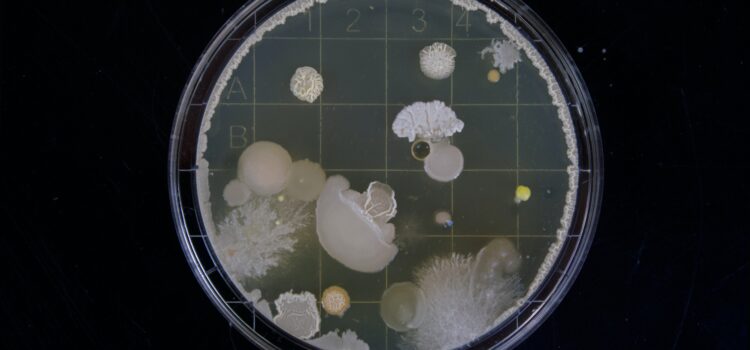

This article is an excerpt from the Shortform book guide to "The Selfish Gene" by Richard Dawkins. Shortform has the world's best summaries and analyses of books you should be reading.
Like this article? Sign up for a free trial here .
What is the importance of DNA replication? Why is replication important for survival and evolution?
The importance of DNA replication is to pass on genes. According to The Selfish Gene, evolution is focused on the survival of genes and not specific species.
Read more about the importance of DNA replication and The Selfish Gene.
The Importance of DNA Replication
At some point in the very, very distant past, a molecule that had the ability to replicate itself happened to form. It’s extremely unlikely for such a “replicator” molecule to appear but, when dealing with timeframes of hundreds of millions of years, what humans would consider unlikely is almost bound to happen at some point.
With its only competition being molecules created from atoms that happened to bump together in the right ways, this replicator molecule would have spread extremely quickly (relatively speaking) through the primordial soup of the time. Here, the importance of DNA replication was the survival advantage. Eventually, though, all the materials that make that molecule would have been used up, which would seem to leave us stuck in a sea of identical molecules with nowhere to go from there.
The reason that didn’t happen is that replication isn’t perfect. Small mistakes can happen. Then, when imperfect copies are made from other imperfect copies, the mistakes add up until you have something completely different from the original. With the massive amounts of time involved in Earth’s early history, it was almost inevitable that such mistakes would happen and build on top of each other.
Some of these molecules were more “successful” than others—that is, they lasted longer, or replicated more quickly or more accurately. The more successful molecules would naturally start to outnumber the less successful ones. That’s the importance of DNA replication.
Since there was not an infinite amount of material to create new molecules, eventually they would have started competing for it. Molecules that were better able to replicate themselves, or prevent competitors from replicating themselves, would become more numerous while those that were out-competed would decline. This would have been the first instance of competition and evolution.
The mechanisms that these molecules created (still purely by chance) became more and more complex as new changes built on top of previous successes. In fact, this was likely how the first cells formed: Some molecules created protective shells of protein around themselves, which continued to grow bigger and more elaborate as time went on. By this point, the molecules that could continue to exist and replicate were the ones that created complex mechanisms—relatively speaking—to protect themselves.
Now, billions of years later, those first replicators have evolved into every form of life we know today. Still, the importance of DNA replication continues. Consider this: A human is nothing but a highly complex and stable survival mechanism for those ancient replicator molecules. So, the importance of DNA replication is essential for the human survival machine.
Genes: The Basics
To start at a basic level, the replicator that all complex life forms host is DNA. DNA is a nucleic acid, a polymer made up of many molecules called nucleotides. There are only four types of nucleotides in DNA: adenine (A), cytosine (C), guanine (G) and thymine (T). Those nucleotides are identical no matter what kind of creature has them: You’ve got the same four nucleotides as your pet cat, or the birds outside. The only difference between different species is how those nucleotides are arranged. To a much lesser extent, they are also arranged differently between different people (except for identical twins).
Those nucleotides are then organized into genes. The genes are like blueprints for proteins, which are used for everything from creating tissue to regulating chemical processes. It’s a complex process to go from nucleotide to protein, but in simple terms, DNA is like a building plan for a living creature.
Whether a gene survives depends on whether the organism it helped create is able to survive and reproduce. How quickly “bad” genes die out depends on how strong the selection is—that is, how much of a disadvantage that gene will be.
In relatively safe environments, even disadvantageous genes can persist for many generations. For example, genes for albinism in humans have survived because, while they can cause serious health problems, the people carrying them don’t die in our current environment.
There are a number of factors that affect how long a given gene lasts, even if the creature does successfully reproduce. These are detailed in the next subsection. Theoretically, a gene could replicate itself through countless generations and “survive” indefinitely.
In short, it could be said that genes are responsible for their own reproductive success. Going one step further, it could be argued that replication is the very purpose of genes, dating back to those first primordial replicators.

———End of Preview———
Like what you just read? Read the rest of the world's best book summary and analysis of Richard Dawkins's "The Selfish Gene" at Shortform .
Here's what you'll find in our full The Selfish Gene summary :
- Why organisms don't matter, only genes do
- How all life forms begin with a replicating molecule
- How species need to balance aggression and pacifism to survive






